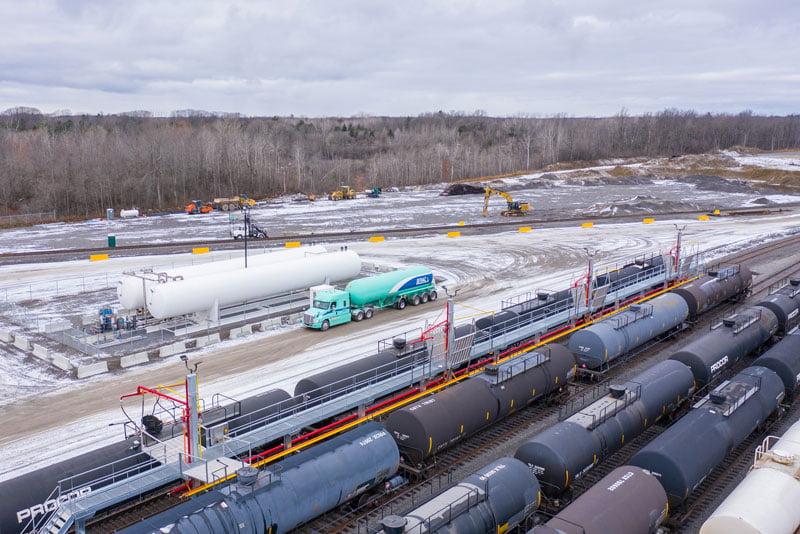
There is no doubt that you have heard of propane before since it is present in many forms in your everyday life. In fact, you can use it, among other solutions, to heat your home or your swimming pool, as fuel for your BBQ or your fireplace, etc.
Propane gas is currently one of the various energy sources used in Canada, as well as around the world. But do you know exactly where propane comes from? How it is transported and stored? What it’s mainly used for?
Here is some information to answer these questions and help you learn more about propane.
Propane is a light hydrocarbon, composed of carbon and hydrogen. It is a by-product obtained from crude oil refining operations or from the process of extracting natural gas and associated gases. Propane is also known as liquefied petroleum gas (LPG) or hydrocarbon gas.
Under normal conditions and temperatures, propane is found in gaseous form, but it is stored and transported in liquid form under high pressure in tanks. In fact, in the liquid state, propane is much more compact, so in a tank, one liter of propane is equivalent to 270 liters in its gaseous form.
In Canada, between 85% and 90% of propane gas comes from natural gas extraction and the remainder comes from petroleum refining. In the rest of the world, about 60% is a by-product of processed natural gas and 40% of refined crude oil. This is because Canada is the fourth largest producer of propane in the world, more than half of which is used in our country. The rest is exported, mostly to the United States.
Propane transportation
Once extracted, the propane gas is transported by pipeline, train, boat and high capacity trucks to various refineries or factories or to large propane suppliers. Subsequently, the distributors are
responsible for storing the propane in tanks or cylinders and supplying the various points of sale and individuals by tanker truck or with gas cylinders.
The various uses of propane
Propane is a widely used energy source in many industries. You find it in particular:
For residential use
- As a source of heating for houses. To find out more: Benefits of heating with propane gas.
- As a source of heating for swimming pools. Read our article to learn all about propane pool heaters.
- As fuel for fireplaces, generators, and cooking appliances (in cylinder form for BBQs).
For agricultural use
- To heat greenhouses and barns
- To dry crops
- To supply irrigation systems
See our article “Role of propane in the agricultural market” for more information.
For industrial use
- For mining operations
- For metal processing
- As a heating source on construction sites
- To power forklifts and generators
In logistics
- As fuel for school or transit buses, taxis, delivery or patrol vehicles.
Do you have any questions about propane gas and its various applications? Don’t hesitate to contact our professionals at Propane Levac Inc., as a propane supplier, they will be happy to answer your questions.
Source: Government of Canada